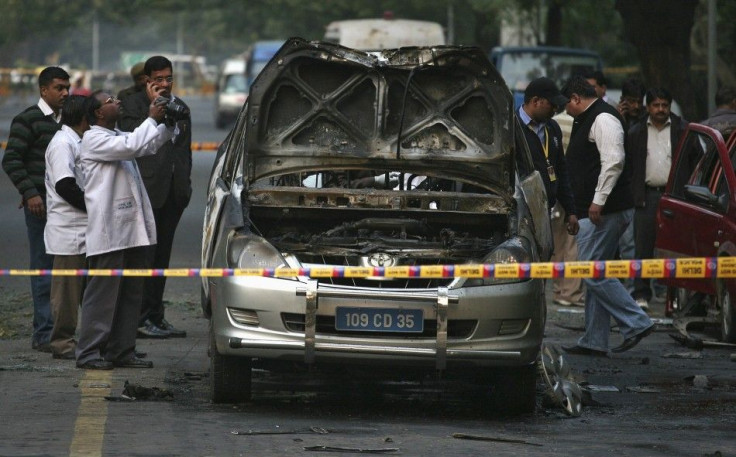Israel Blames Iran for Diplomat Attacks; Is War Next Step?

After Israeli diplomats in India and Georgia were attacked on Monday, the world is again left wondering how close a war with Iran could be.
The wife and driver of an Israeli envoy in New Delhi, India were injured when a bomb was detonated on their embassy car. Moments later, an explosive device was found attached to the undercarriage of an Israeli diplomat's vehicle in Tbilisi, Georgia.
Israeli Prime Minister Benjamin Netanyahu has blamed Iran for the bombing and attempted bombing, the latest allegations in a chain of unconfirmed and unaccounted for back-and-forth attacks and accusations between the two nations.
Iran has in turn blamed Israel and the U.S. for a series of assassinations of its nuclear scientists -- the most recent last month, which an anonymous American official tried to confirm last week -- while Israel believes that Iran is building a nuclear weapon, which would have disastrous security implications in the Middle East.
There will be public disagreements [about Monday's bombings] because Israel did the same thing to Iran, but that's background noise compared to the issue of whether or not Iran has nuclear weapons, said Seth Cropsey, a Senior Fellow at the Hudson institute who held Defense Department positions during the Reagan and Bush administrations.
Each new event escalates tensions between Israel and Iran -- as well as between Iran and the West. Will the diplomat attacks be the excuse that Israel uses to go to war?
Israel -- and especially Netanyahu -- has not been shy about their desire to launch a pre-emptive strike against Iran. For Israel, a nuclear-powered Iran is a direct threat to its sovereignty. Many, including U.S. Defense Secretary Leon Panetta, think that an Israeli strike on Iran is a question of when, and not if.
I don't think that Netanyahu will make a decision as important or grave as using military force based on the attack against diplomats, noted Cropsey.
The decision that Israel has to make doesn't change because of this.
The Lebanon Connection
Initial speculation for the bombings on Monday pointed toward Hezbollah, the Lebanese militant group that seeks to destroy Israel totally. The attacks came a day after the anniversary of the assassination of Imad Mughniyah, one of Hezbollah's founders.
Although Israel has never directly claimed responsibility for killing Mughniyah, it is assumed that the Israeli intelligenct agency Mossad killed the militant leader in the name of self-preservation.
While Netanyahu has pointed his finger east toward Iran instead of north to Lebanon, that doesn't mean that Hezbollah wasn't involved. The Lebanese movement is heavily supported and funded by Iran.
This drama is being played out before the world stage, said Cropsey. As far as the onlookers are concerned, they don't care [if it's Iran or Hezbollah]. It's a distinction that only matters in official circles.
While Iran has yet to officially respond to the allegations, it continues to say that Israel is preparing the propaganda campaign necessary to launch an attack. When the International Atomic Energy Agency released its November report that said Iran was trying to building nuclear weapons, Iran quickly turned around and said that it was pure fabrication meant to strike fear into the heart of the world that Iran is on the course of producing nuclear weapons and that the world is on the brink of ruination.
Israel and the West, particularly the U.S., are afraid of the role and capabilities of Iran, and therefore are attempting to drum up international support for a military campaign against Iran, which is meant to deter Iran, Iranian President Mahmoud Ahmadinejad said at the time.
They are saying that Iran is seeking the atomic bomb. But they should know... we do not need a bomb... Rather we will act thoughtfully and with logic. History has shown that anyone acting against the Iranian nation regrets it.
Currently, Iran is backing up its threats with even more charged rhetoric. After first filing a formal complaint against Israel for the death of the nuclear scientist, on Monday, Iranian Navy commander Rear Admiral Habibollah Sayyari said that his warships are capable of missions in any open ocean, including the Atlantic.
The proclamation augments Iran's desire to send a fleet to the U.S. coast as retribution for the global arrogance of America, which regularly has ships patrolling the Persian Gulf.
© Copyright IBTimes 2024. All rights reserved.




















